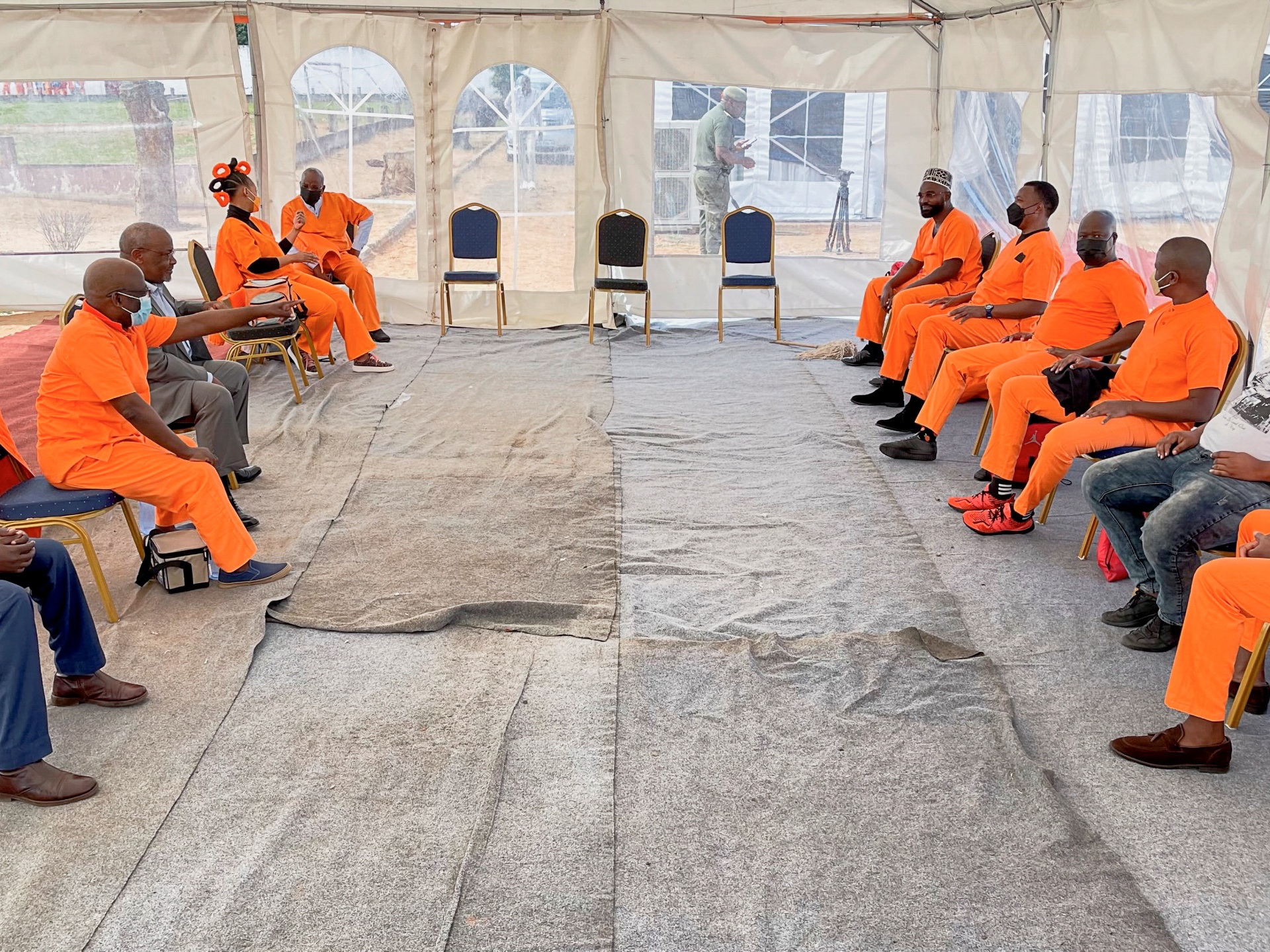The 19 high-profile defendants in the ‘hidden debt’ case are accused of a wide range of financial crimes connected to illicit state-backed loans.
A court in Mozambique has begun handing down verdicts in the country’s biggest corruption scandal, in which the government unleashed a financial earthquake by trying to conceal huge debts.
The 19 high-profile defendants, who include former state security officials and the son of an ex-president, faced charges ranging from money laundering to bribery and blackmail related to a $2bn “hidden debt” scandal that crashed the nation’s economy.
Judge Efigenio Baptista of the Maputo City Court said on Wednesday that reading the 1,388 page judgement was likely to take five days. The trial, which started in August last year, ran until March.
All the accused, who were present in court on Wednesday, have denied any wrongdoing.
The scandal arose after state-owned companies in the impoverished country illicitly borrowed $2bn in 2013 and 2014 from international banks to buy a tuna-fishing fleet and surveillance vessels. The government masked the loans from parliament and the public.
When the “hidden debt” finally surfaced in 2016, donors including the International Monetary Fund (IMF) cut off financial support, triggering a sovereign debt default and currency collapse.
An independent audit found $500m of the loans had been diverted. The money remains unaccounted for.
Former Finance Minister Manuel Chang – who signed off the loans – has been held in South Africa since 2018, pending extradition to the United States for allegedly using the US financial system to carry out the fraudulent scheme.
Former President Armando Guebuza, who was in office when the loans were contracted, testified at the trial. He was not charged himself, but his eldest son Ndambi was in the dock along with the 18 other defendants.
‘Corruption doesn’t pay off’
About 100 people sat in the special courtroom, set up in a white marquee on the grounds of a high-security jail in Maputo to accommodate the large number of defendants, their lawyers and other parties, the AFP news agency reported.
Local civil society organisations welcomed the trial.
“I think for the public has been very important trial,” Denise Namburete, the founder of the non-profit N’weti and a member of the Mozambique Budget Monitoring Forum, a coalition of civil society organisations, told Al Jazeera from Maputo. “It has been naturally the first time that the public … see high level government officials being indicted and judged at court.”
“It sends out the message that high level government officials can be held to account. It also sends the message that corruption doesn’t pay off. And at the end of the day, I think it is an opportunity for Mozambique to restore trust in the judicial system,” she added.
Anti-corruption activists are also calling for tough sentences.
“The conviction must be strong enough so that it is not annulled or significantly reduced in a second instance court,” Borges Nhamirre, a researcher at the anti-corruption non-profit watchdog Public Integrity Center, told AFP. But Adriano Nuvunga, the head of a rights group called the Centre for Democracy and Development, predicted the sentences would be “politically rigged”.
Namburete told Al Jazeera: “I think there is an understanding that this is a political trial,” adding, “Unfortunately, we’ve only seen 19 defendants being indicted but there were many more people involved in this case that weren’t indicted and we probably will not see that justice made in regard to these people.”

